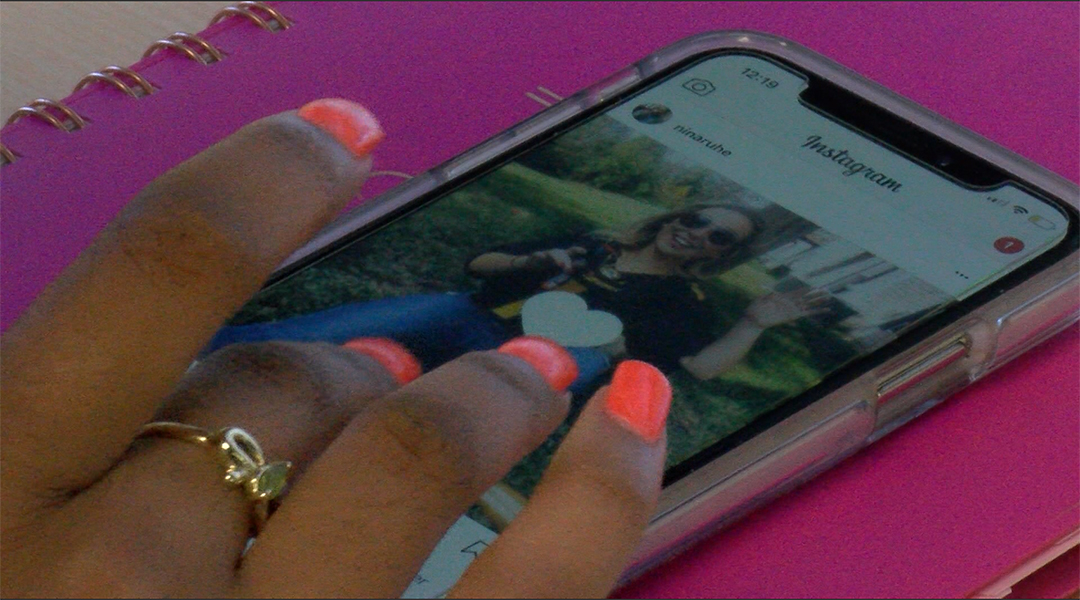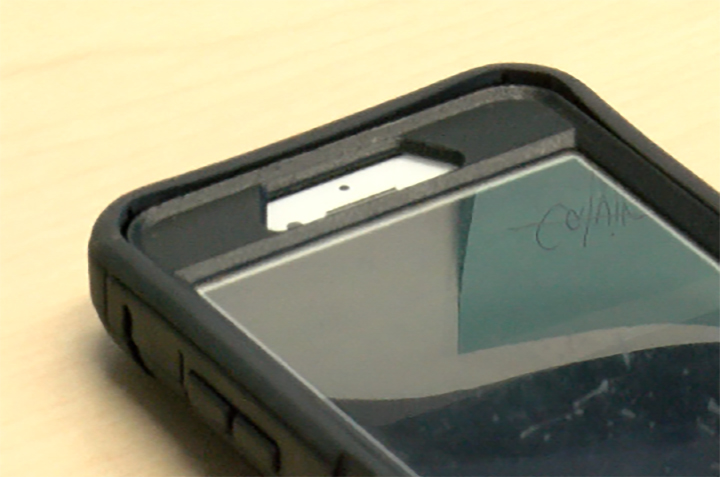Studies suggest that a ‘like’ on Instagram can release dopamine in from your brain, the nuerochemical transmittor associated with pleasure and motivation.
Social media is becoming a popular outlet for many young teens and adults.
Maybe we better not label this student as addictive! People right here in Columbia show addictive like behaviors with their phones like this A USC student walks while using her phone on Greene Street.
Image 3 caption goes here.
Image 1 caption goes here.
Some researchers are suggesting that the hours you are spending on social media could be addictive and could affect your brain.
Adam Atler, who has written a book called “Irresistible: The Rise of Addicitve Technology and the Business of Keeping Us Hooked,” contends that receiving an Instagram post or Facebook notification is “a little bit like taking a drug. As far as your brain is concerned, it’s a very similar experience.”
Adler suggests that the amount of the brain chemical dopamine released in the brain when a person uses drugs or alcohol is similar to that released when a person gets “likes” on Instagram. Dopamine is the neurochemical reward associated with motivation and pleasure. When you post a picture on Instagram the possibility of receiving “likes” increases the release of dopamine in your brain which is what keeps you coming back.
“If I posted the day before, my favorite thing is to refresh Instagram and just see if I got any ‘likes’ overnight, which is so stupid now that I’m saying it out loud,” Alyvia Wright, a graduate student at the University of South Carolina, said.
Wright has more than 13,000 followers and felt the effects of social media when she first hit 10,000 followers.
“As soon as you stop posting on it you honestly might feel better,” Wright said.
USC psychology professor Neil Levens says social media and use of technology in general can lead to addictive behaviors. However, as far as comparing it to an addiction like drugs or alcohol, that is a far stretch, said USC Director of Mental Health Initiatives April Scott.
“If a person stops taking alcohol, their body is going to go into withdrawals because it affects their brain, neuropathways as well as their body. So with social media, technically nothing happens if you stop,” Scott said. Social media can not give you the same experience as drugs and alcohol, she said.
Scott agrees with Levens that social media can become an addictive-like behavior. Addictive-like behavior is if someone is neglecting their work, relationships with people and daily activities to engage with social media.
Scott encourages people to take breaks and reflect on what they are actually getting from social media. She suggests if a person is worried they are over-using social media, to talk to someone about this. Although social media can’t be classified as addiction, it can still become an unhealthy activity. relationship.
As of now, the American Psychiatric Association and the Diagnostic and Statistical Manual of Mental Disorders do not officially recognize social media as a behavioral addiction, but Levens said that will probably change in the future.







